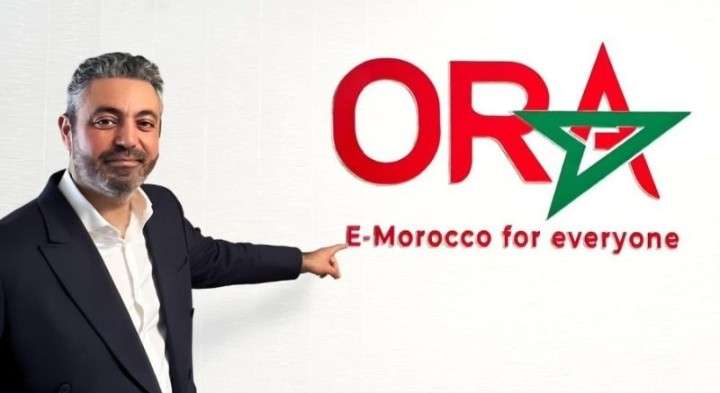In North Africa’s digital economy, Morocco-based ORA Technologies has secured $7.5 million in Series A funding to expand its superapp ecosystem and fortify its digital cash collection infrastructure.
The funding round, led by Azur Innovation Fund and backed by three additional local investors, underscores the rising confidence in Moroccan startups and brings ORA’s total capital raised to $11.9 million since its founding in 2023.
ORA, launched by tech entrepreneur Omar Alami, offers a multipurpose app that merges peer-to-peer payments, e-commerce, food delivery, ride-hailing, chat, and social networking into a single interface.
Its flagship offerings, including the food delivery service Kooul and the mobile wallet ORA Cash, have already gained significant traction, registering over 15,000 and 50,000 active users respectively in less than a year.
With this new capital injection, ORA aims to improve the speed and efficiency of last-mile delivery, digitize Morocco’s cash-on-delivery economy, and explore local and international scaling opportunities.
“ORA is a good example of a 100 percent ‘Made in Morocco’ journey,” said Alami, “and this funding proves that Moroccan startups can thrive with domestic support.”
A Superapp for the Everyday Moroccan
ORA Technologies’ vision centers around the idea of a unified digital experience for everyday services. Launched just two years ago, the ORA app integrates multiple functions, such as money transfers, shopping, chat, and food ordering, into a single ecosystem.
This streamlined approach is intended to reduce the need for users to download multiple apps, providing convenience, efficiency, and localized solutions tailored to Moroccan habits and infrastructure.
The company’s early user numbers reflect growing public appetite: Kooul, its food delivery platform, has already reached more than 15,000 active clients within 10 months of launch, while ORA Cash, the company’s mobile money service, has grown to over 50,000 accounts in just five months.
Digitising Morocco’s Cash Economy
A major part of ORA’s success lies in its ability to respond to the country’s reliance on cash-based transactions, particularly in e-commerce and food delivery.
The company is addressing this challenge through the adoption of ORA Cash by riders and delivery agents, enabling them to collect payments digitally in a traditionally cash-heavy ecosystem.
This shift not only modernizes Morocco’s delivery logistics but also contributes to broader goals of financial inclusion and transparency.
By targeting the “last mile”, the crucial final step in the delivery process, ORA is optimizing a critical part of the customer experience while reducing operational inefficiencies linked to manual cash handling.
Local Funding, Local Confidence
The $7.5 million Series A round marks a turning point for Morocco’s investment landscape, particularly as all of the capital was sourced locally.
The lead investor, Azur Innovation Fund, alongside three other domestic backers, signals a growing trend of confidence in Moroccan-led tech ventures.
ORA’s founder, Omar Alami, emphasized the significance of local capital in fueling innovation:
“This landmark achievement shows a strong commitment from local investors to the local startup ecosystem,” he stated. “It proves that local funding alternatives exist for later stages and encourages Moroccan founders to raise more money locally to scale up.”
The round follows an earlier $1.9 million pre-Series A raise in March 2025, cementing ORA’s position as one of the most well-funded startups in the country in recent years.
Scaling Up and Looking Outward
With new funding secured, ORA Technologies is now focused on accelerating its logistics capabilities and enhancing the robustness of its digital payment infrastructure.
The company has laid out plans to grow not only across Moroccan cities but to also explore international opportunities in regions with similar market conditions.
By demonstrating how local innovation and capital can fuel sustainable tech ecosystems, ORA is positioning itself as a North African success story with continental, and potentially global, ambitions. As Alami succinctly puts it,
“ORA is built for Morocco, by Moroccans, but its impact can go far beyond.”
Why This Matters
ORA Technologies’ $7.5 million Series A funding marks a pivotal moment for Morocco’s tech landscape, not only for its scale but for what it symbolizes, a shift toward homegrown, scalable innovation powered by local capital.
As a multifunctional superapp combining payments, e-commerce, food delivery, and social networking, ORA is tackling systemic challenges like Morocco’s cash-dominant economy by digitizing last-mile transactions through its ORA Cash wallet, which gained over 50,000 users in just five months.
This development reflects a broader trend of African startups solving local problems with regionally relevant models, akin to Asia’s superapp playbook.
Founder Omar Alami remarked, “ORA is a good example of a 100 percent ‘Made in Morocco’ journey,” while emphasizing that “this landmark achievement shows a strong commitment from local investors… and proves that local funding alternatives exist.”
More than just a funding win, ORA’s growth reinforces investor confidence in African-built platforms and signals a turning point for digital transformation in North Africa.
Talking Points
ORA Technologies’ rapid rise illustrates how homegrown digital innovation can become a powerful engine for scaling Morocco’s economy.
By offering a superapp that integrates essential services, like payments, food delivery, e-commerce, and communication, ORA is helping to formalize previously informal sectors, such as cash-on-delivery logistics and micro-transactions.
The success of ORA Cash, which gained over 50,000 users in just five months, demonstrates how digital wallets can deepen financial inclusion and increase the visibility of economic activity, making it easier for businesses and consumers to participate in the formal financial system.
This shift supports broader goals such as increasing tax revenues, improving data collection for policy, and expanding credit access, critical levers for a scalable and resilient economy.
More broadly, ORA’s momentum shows the potential of technology to serve as the backbone of Morocco’s economic development strategy.
By creating digital infrastructure that connects citizens, services, and financial tools, platforms like ORA are enabling the growth of new industries, generating employment in tech, logistics, and customer service, and attracting local investment, an important milestone in a region historically dependent on foreign capital.
As Morocco looks to position itself as a regional innovation hub, nurturing digital ecosystems like ORA’s could not only drive internal economic growth but also boost the country’s competitiveness across Africa and the wider Mediterranean region.





